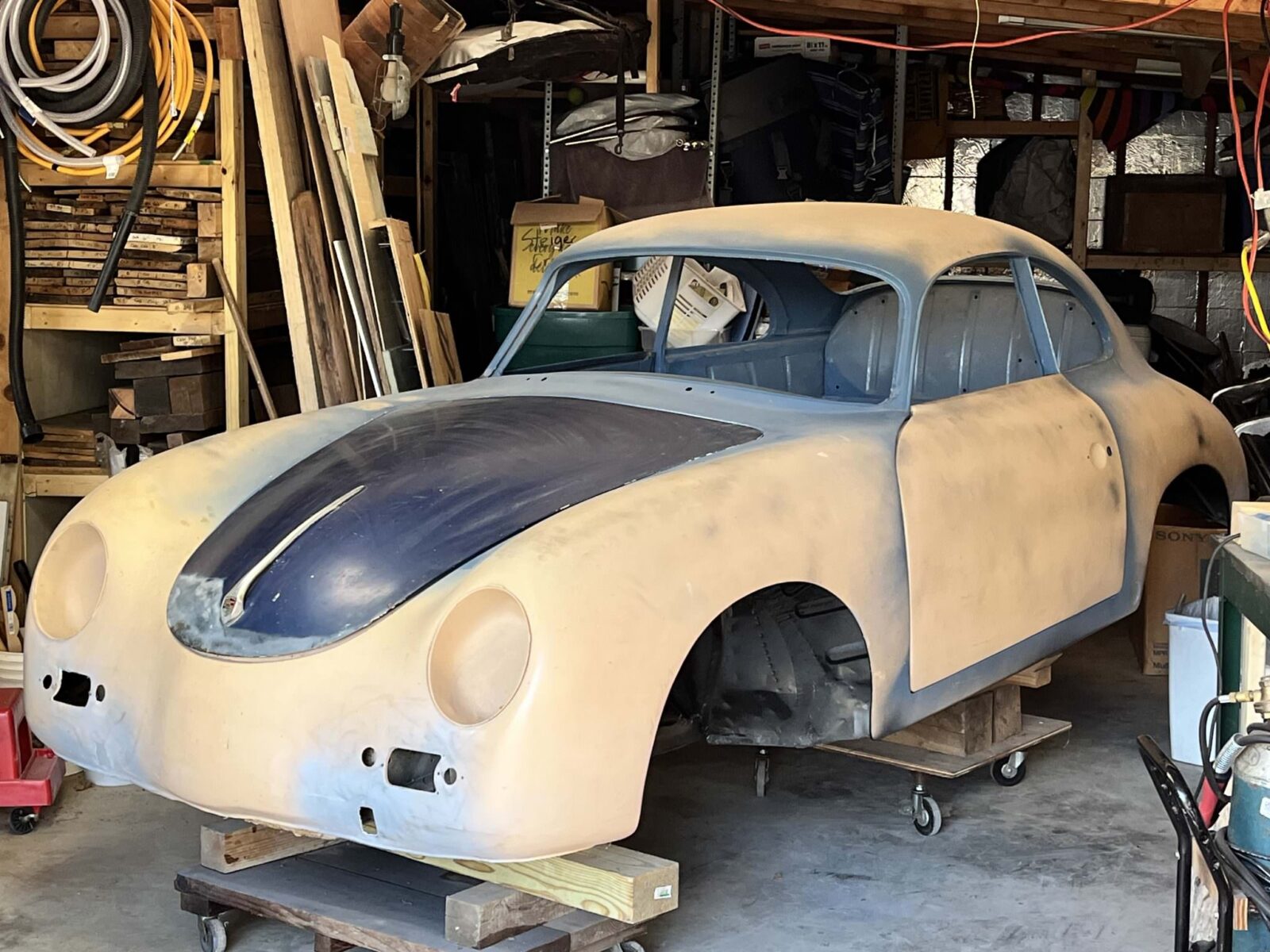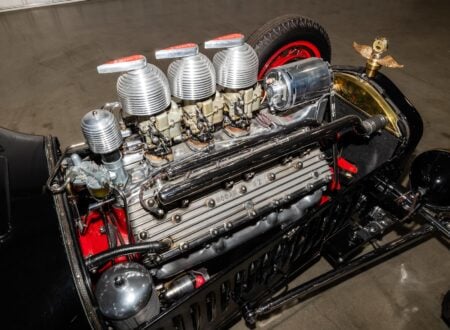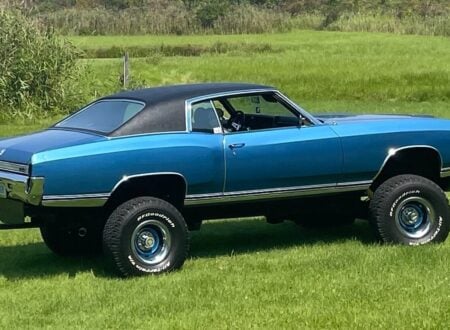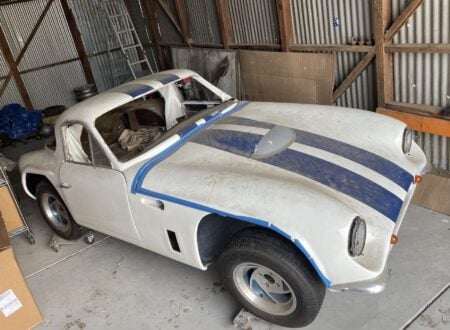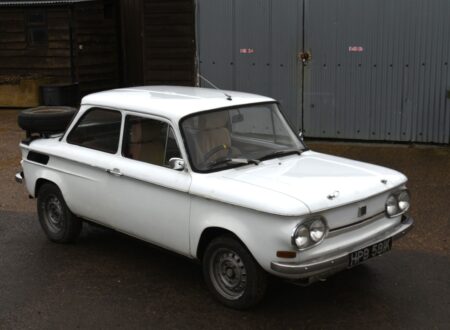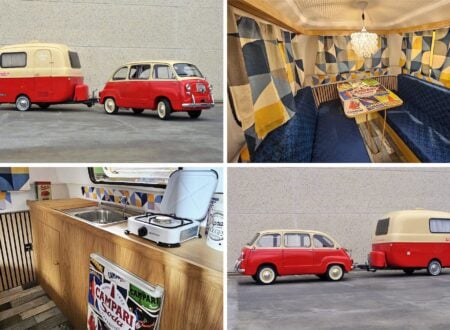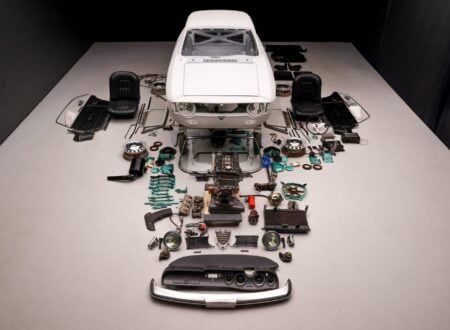This is a 1957 Porsche 356A that has spent over 40 years off the road. It was rescued from a barn in the early 1990s where it had been stored under piles of knickknacks for years.
A restoration then began, however it stalled, and the car is now being offered for sale as-is. It comes with the original body shell which has had some remedial work done and a partial primer coat has been applied. There is also a replacement 1.6 liter Type 616/36 flat-four engine, a Type 644 4-speed manual transaxle, and a number of other parts.
Fast Facts – A Porsche 356 Project Car
- This 1957 Porsche 356A was discovered in a barn after countless years off the road, stored under piles of knickknacks. It began a partial restoration in the 1990s, which stalled, leaving it in its current as-is condition.
- The car includes its original body shell with remedial work done, a partial primer coat, a 1.6 liter Type 616/36 flat-four engine, a Type 644 4-speed manual transaxle, and numerous disassembled components such as brakes, suspension, and wiring.
- The Porsche 356 was the brand’s first production car, gaining fame thanks to its many racing success in the 1950s. It established Porsche’s reputation in Europe and the US before being replaced by the 911 (and 912) in the 1960s.
- This project car comes with a Porsche Certificate of Authenticity, spare parts, and a clean Pennsylvania title. Its non-matching engine makes it ideal for an “Outlaw 356” build, and it’s currently offered for sale in Maryland.
A History Speedrun: The Porsche 356
The Porsche 356 would be the first production Porsche automobile, and while the later Porsche 911 would become more famous, it was the 356 that established Porsche as a respected automaker in Europe, and perhaps more importantly, across the Atlantic in the United States.
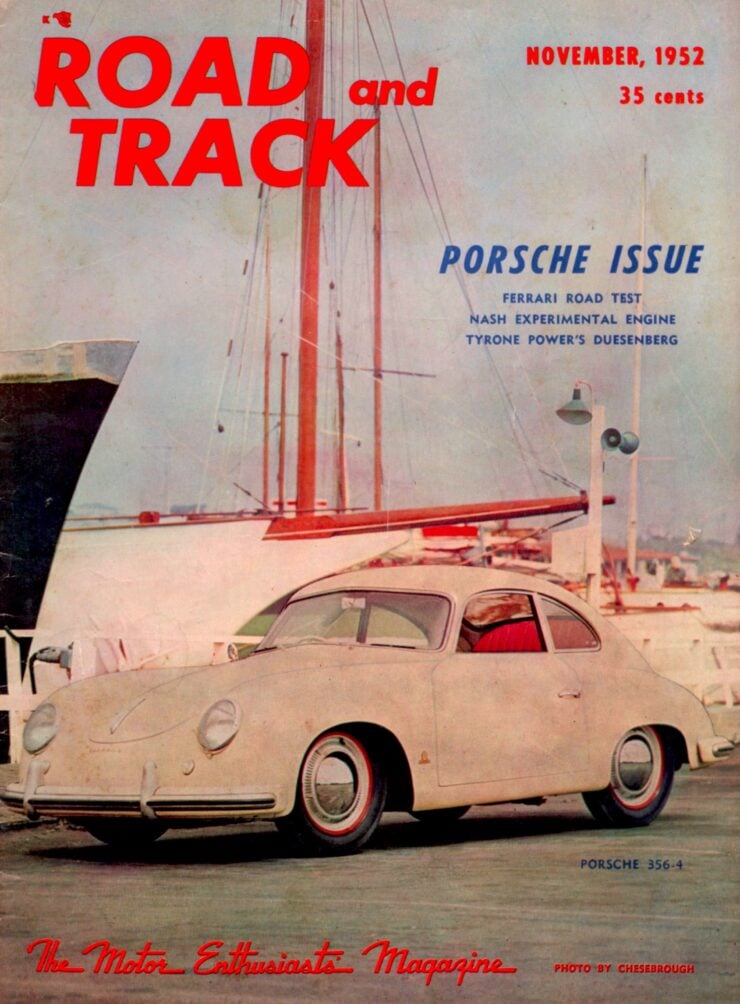

Ferdinand “Ferry” Porsche (son of Ferdinand Porsche) designed the Porsche 356 alongside longtime company employee Erwin Komenda. They developed a unitized pan and body structure similar in philosophy to that of the Beetle but sharing no pan/body parts in common.
Power would be provided by an air-cooled flat-four fitted in the rear and mated to a 4-speed transaxle. Early 356s did make use of a handful of Volkswagen parts including the engine casing and some suspension parts, though this parts commonality would slowly be lowered to zero as the 356 was further developed at Porsche into a highly-competitive sports car in its displacement class.
The Porsche 356 would first enter production in 1948 on a very limited basis, just 50 were made in the first couple of years and the car remained largely unknown outside of Europe.
This all began to change when a 356 won its class at the 1951 24 Hours of Le Mans, this was followed by more race and class wins in various events, and the motoring world really began to sit up and take notice of this then-new sports car marque.
In 1954 Porsche unveiled their in-house developed Carrera four-cam racing engine, and in 1955 James Dean made waves by trading in his MG for a 1955 Porsche Super Speedster. Success would come in thick and fast for Porsche in the 1950s, they released the advanced Porsche 550 Spyder and a number of other special race cars, but it would be the 356 that was their true bread and butter.
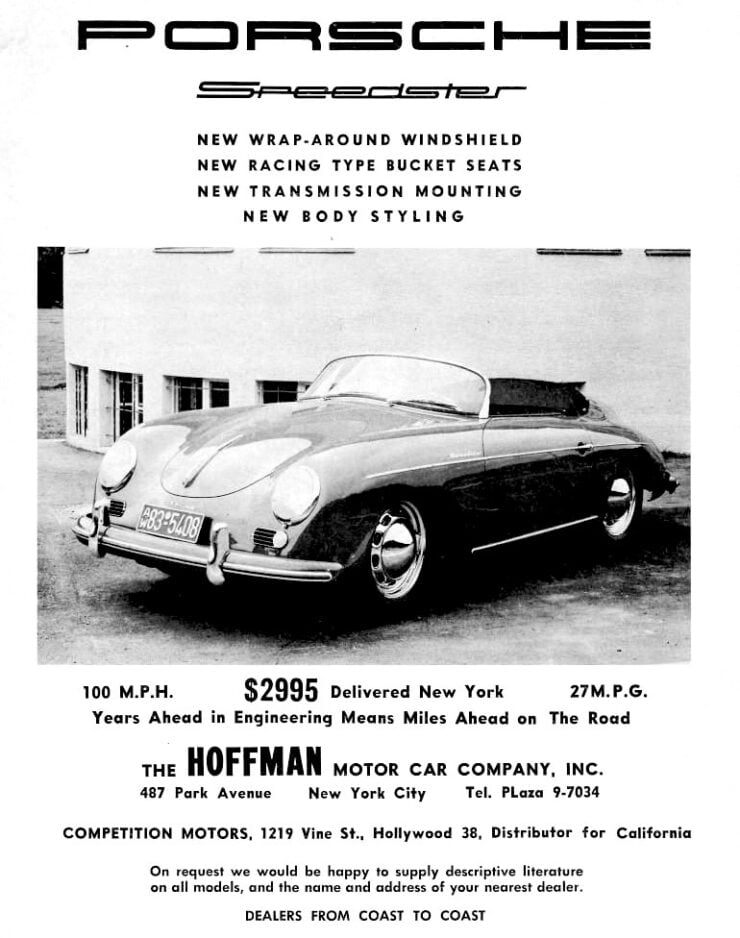

By the 1960s the Porsche 911 was in development, a slightly larger, heavier sports car with a more powerful flat-six in the back. The 356 would remain in production until 1965 when it was replaced in the line-up with the Porsche 912, a less-costly version of the 911 powered by the higher-revving 616/36 version of the 356’s four-cylinder flat-four.
The 1957 Porsche 356 Project Car Shown Here
This is a Porsche 356 from 1957, making it a 356A variant. Its life these past few decades has been dominated by storage, first in a barn buried under odds and ends, and then elsewhere, with a partial restoration being undertaken in the early 1990s.
Sadly, as is often the case with restorations, this one was put on hold. Life has a way of throwing curve balls and people’s priorities change with the arrival of children or grandchildren, and this may have been what happened here.
The car was stripped of some paint and given a partial primer coat as you can see from the images. It’s accompanied by a long list of spare parts including a higher-performance 1.6 liter Porsche Type 616/36 flat-four engine, a Type 644 four-speed transaxle, the old removed wiring, a dismantled set of steel wheels, and the disassembled components of the car’s brakes, suspension, and other mechanical parts.
The interior parts including the seats, door panels, and carpeting are also included. It will be up to the new owner which direction they take on the rebuild, but as the car comes with a more powerful, non-numbers-matching engine it would be a fantastic starting point for an Outlaw 356 build.
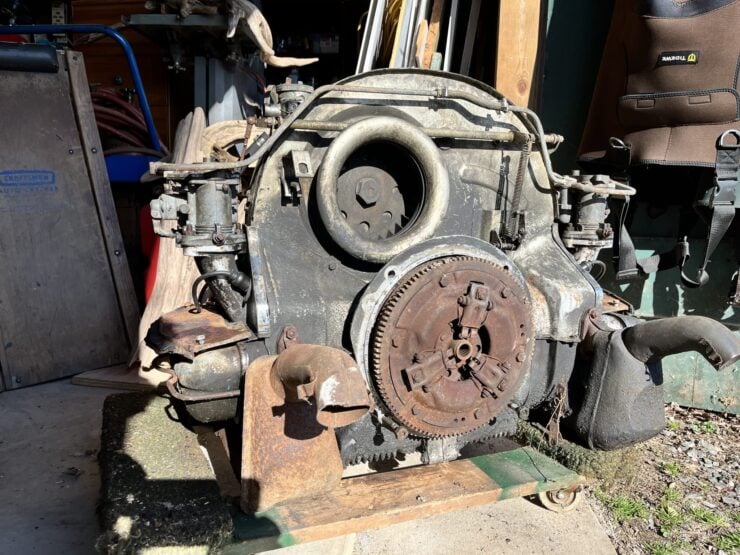

There are some signs underneath of previous rust repair and some rust damage, and it’s clear that some sections will need to be cutout and replaced or fettled back into the correct shape. This will likely lead to a more affordable hammer price, potentially making it a good project for those on a tighter budget.
It’s now being offered for sale out of Maryland with a Porsche Certificate of Authenticity and a clean Pennsylvania title in the seller’s name. If you’d like to read more about it or register to bid you can visit the listing here.
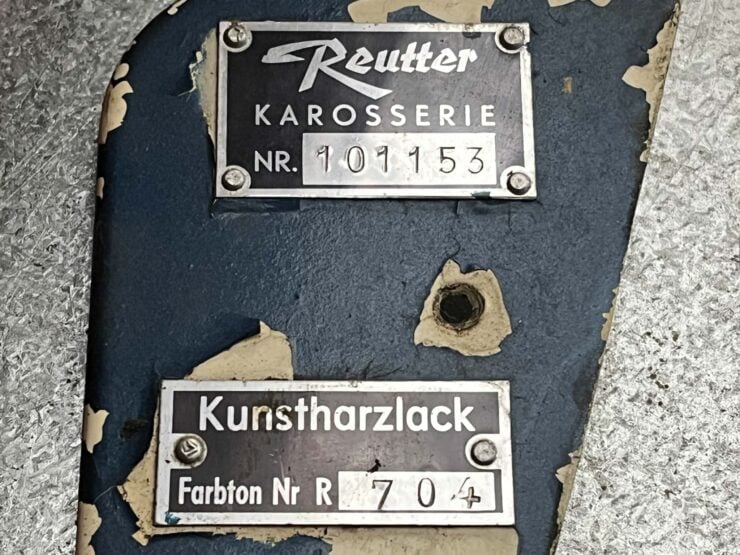
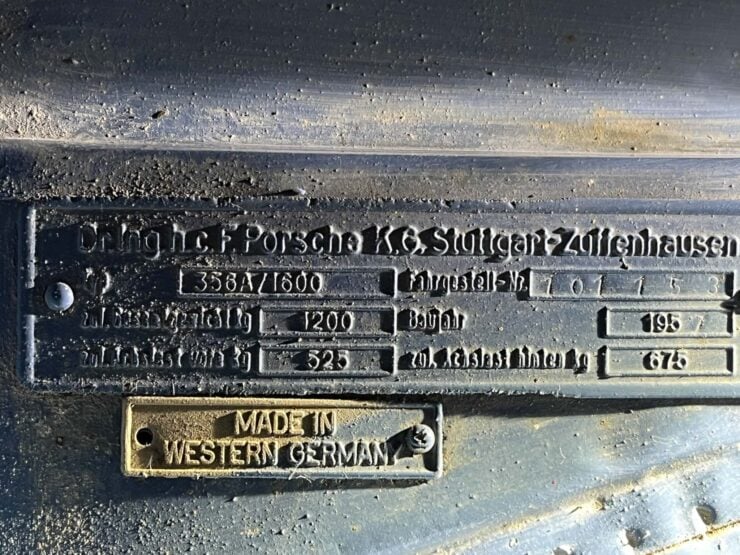
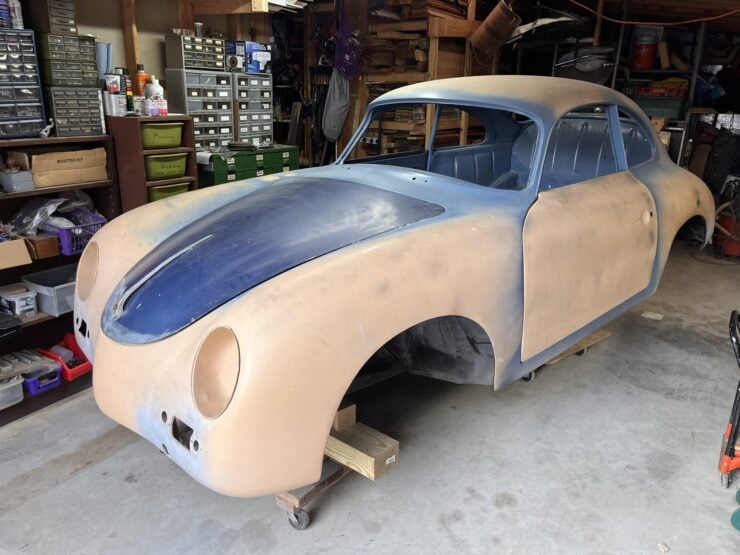
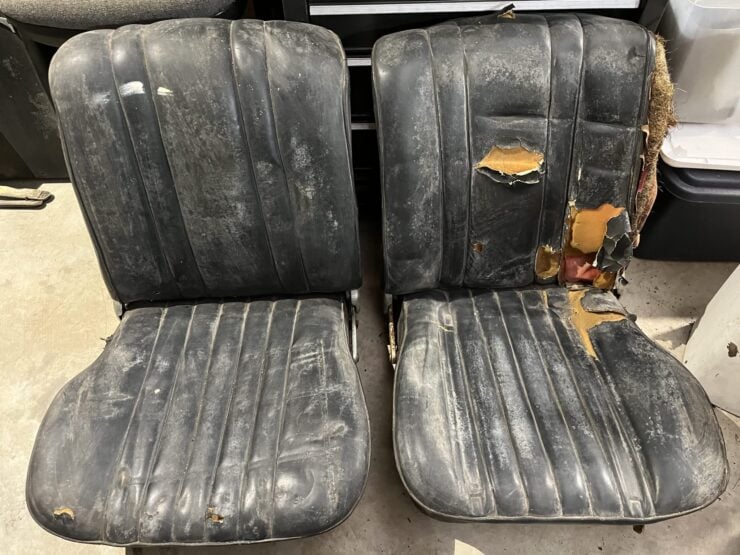
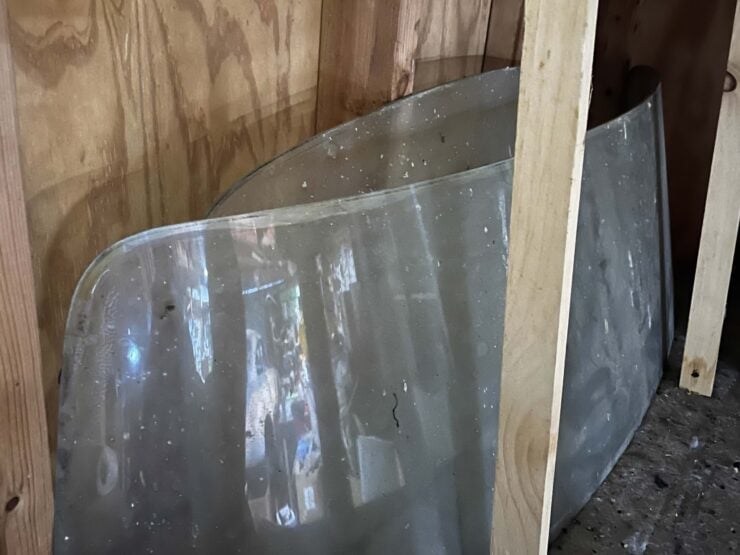
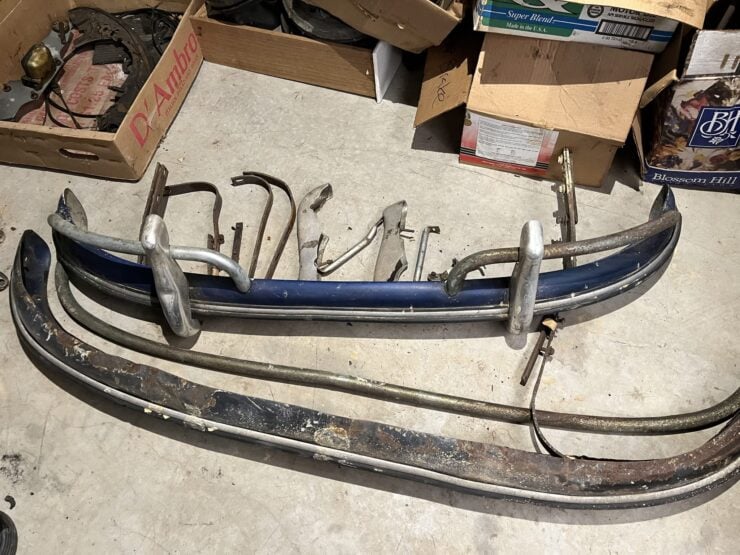
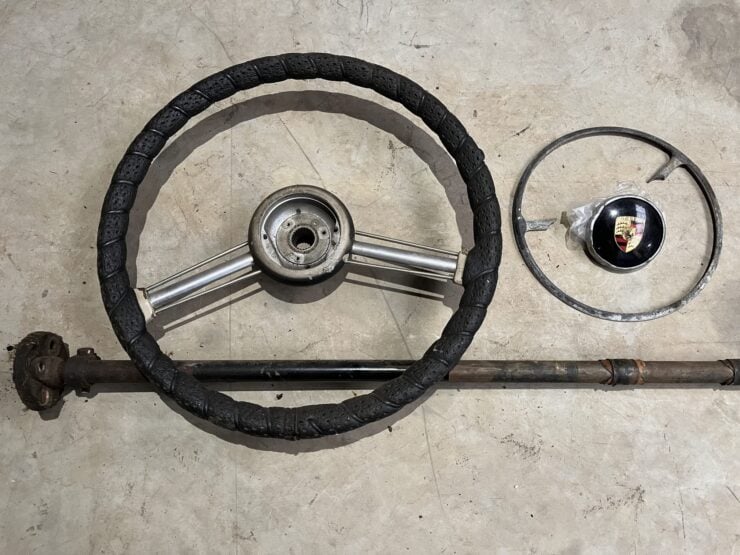
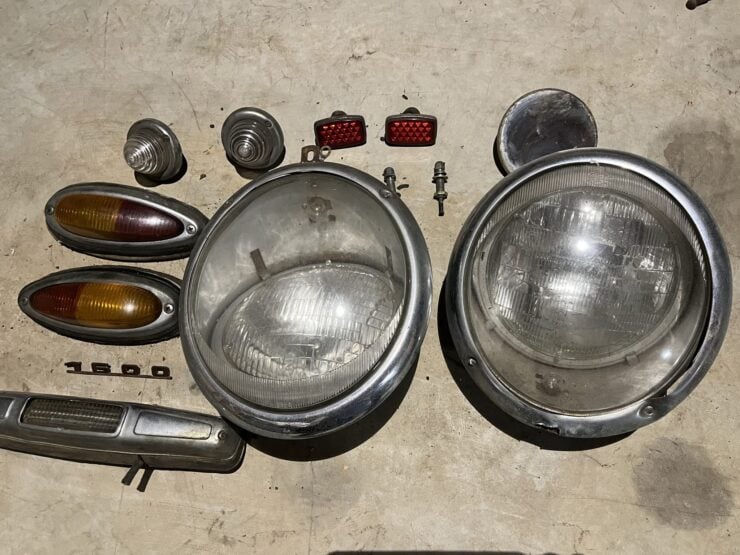
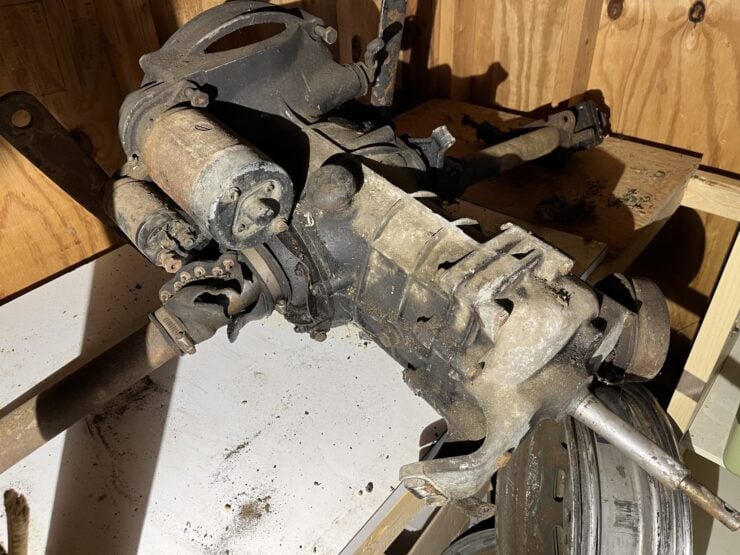
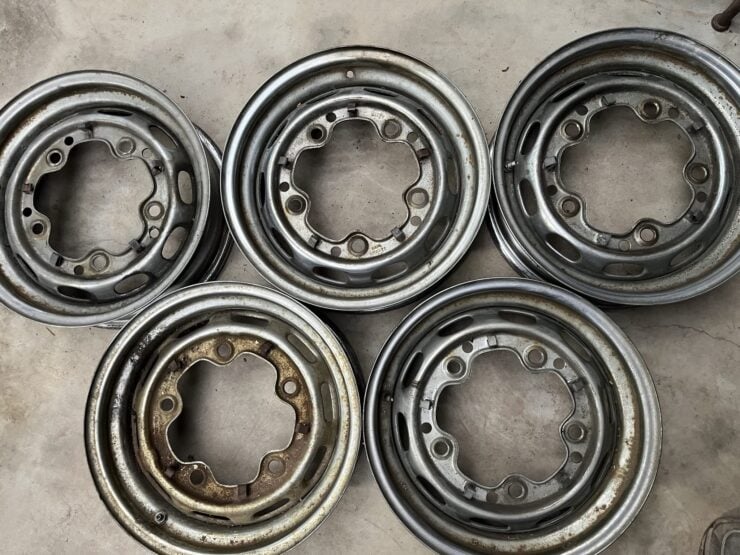
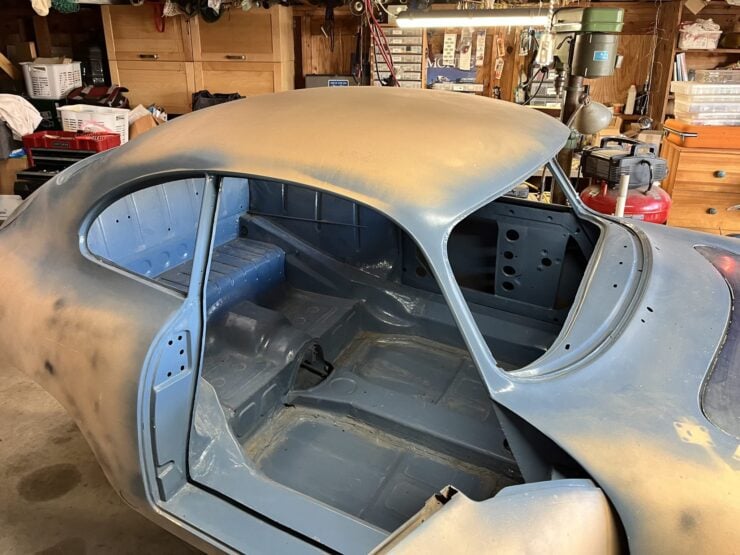
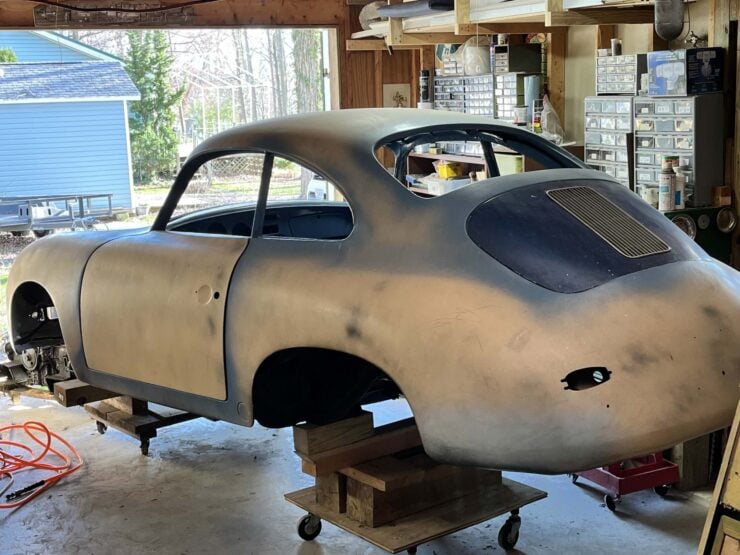
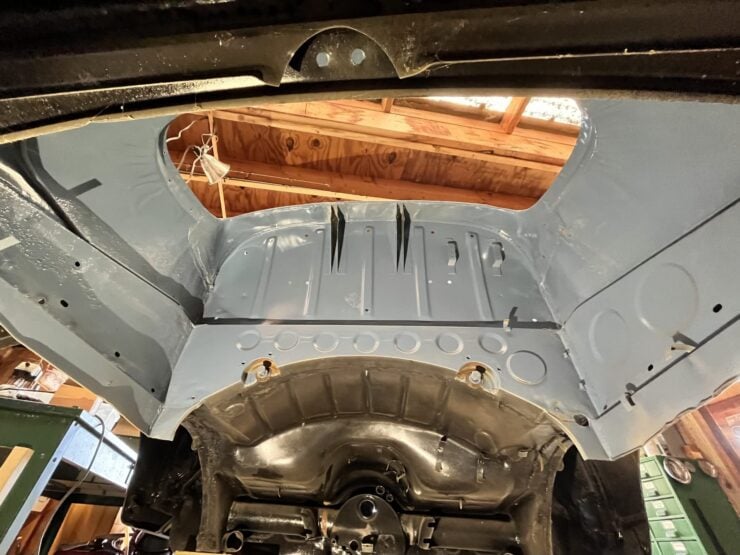
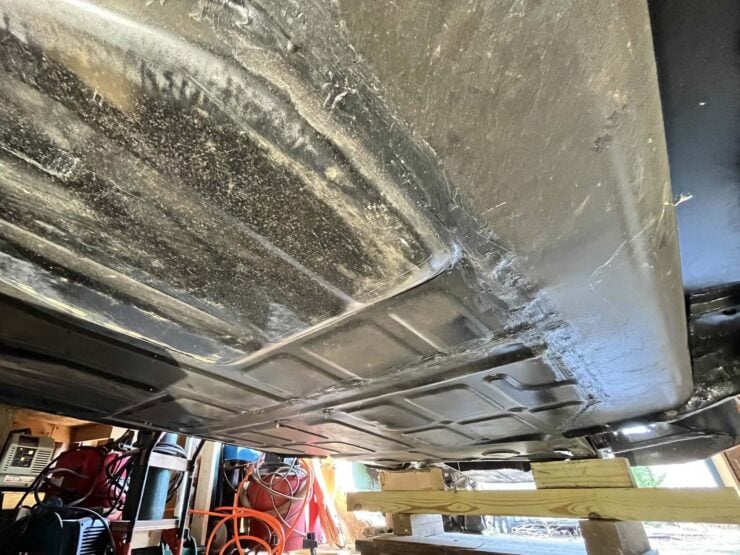
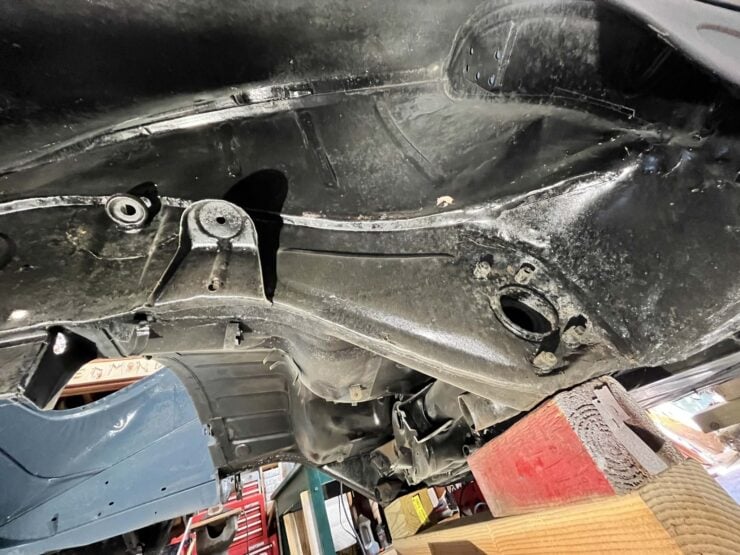
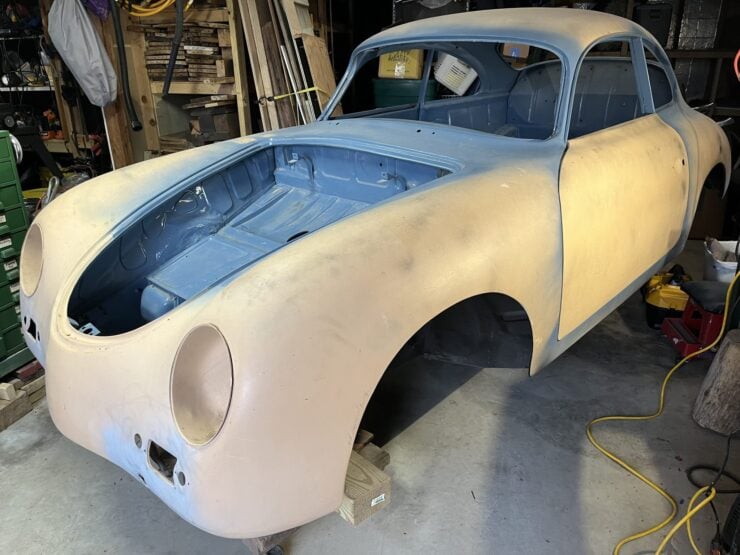
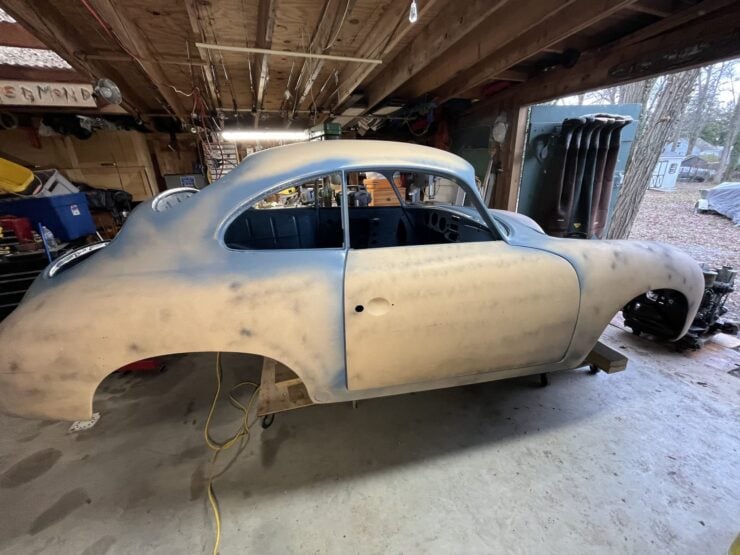
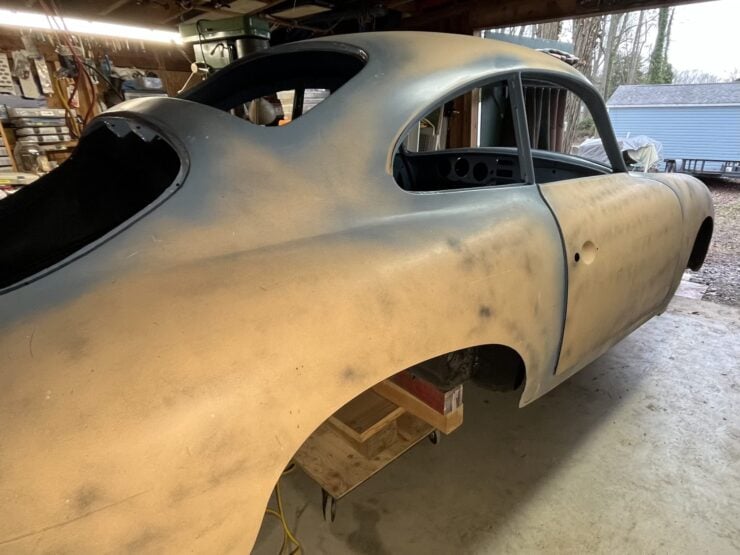
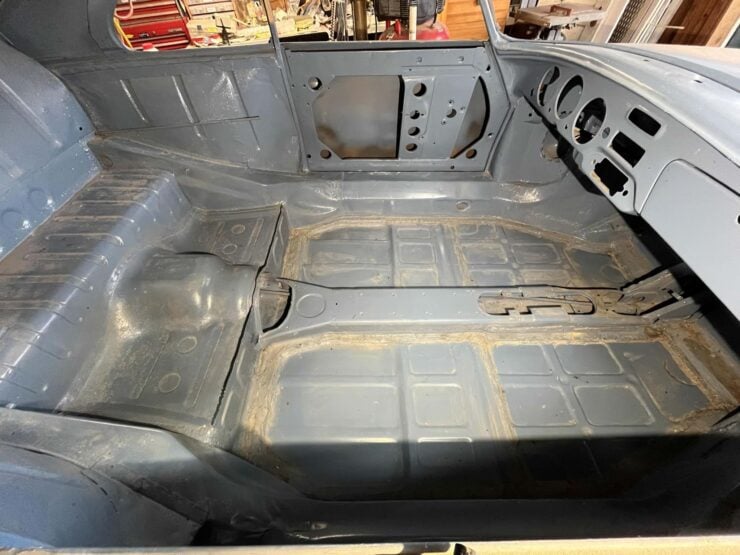
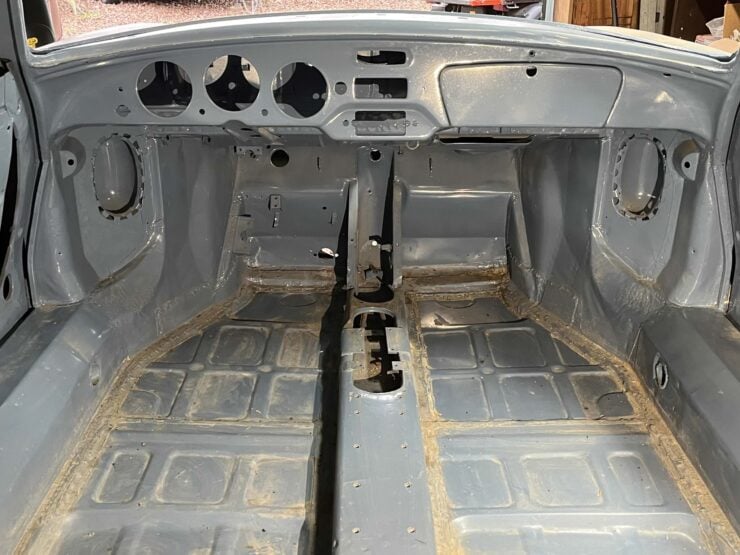
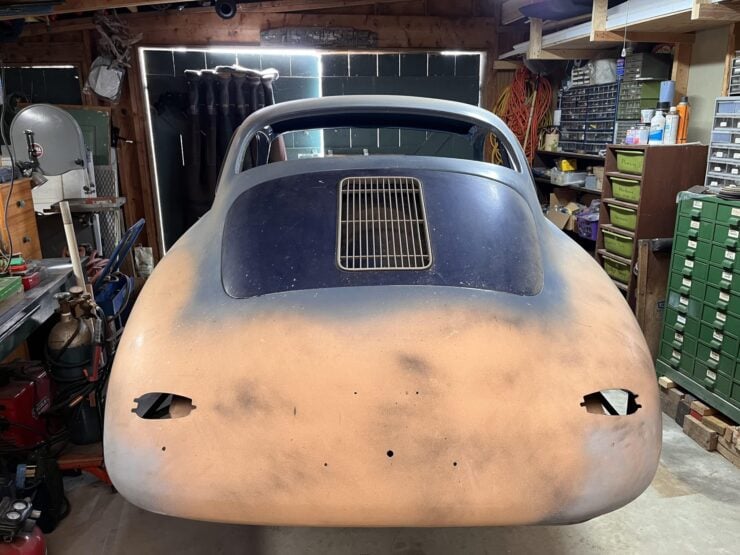
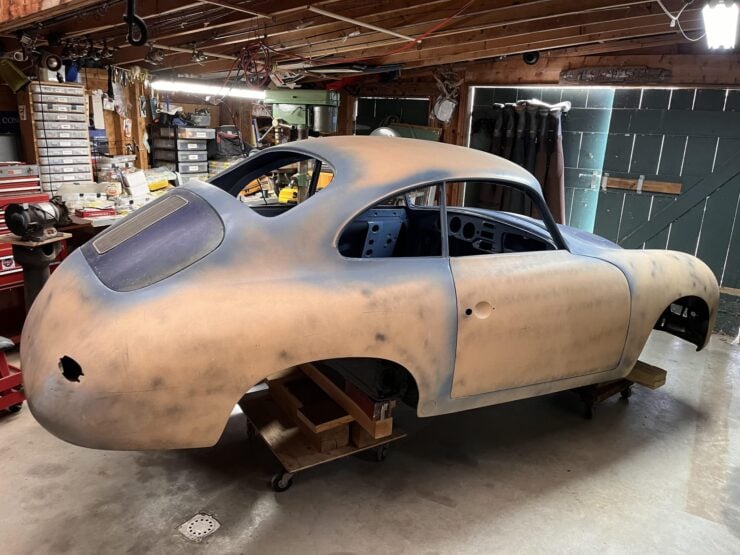
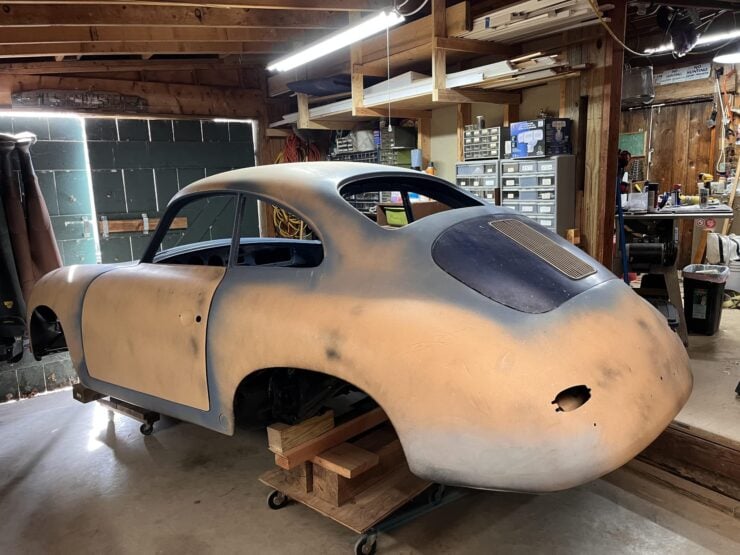
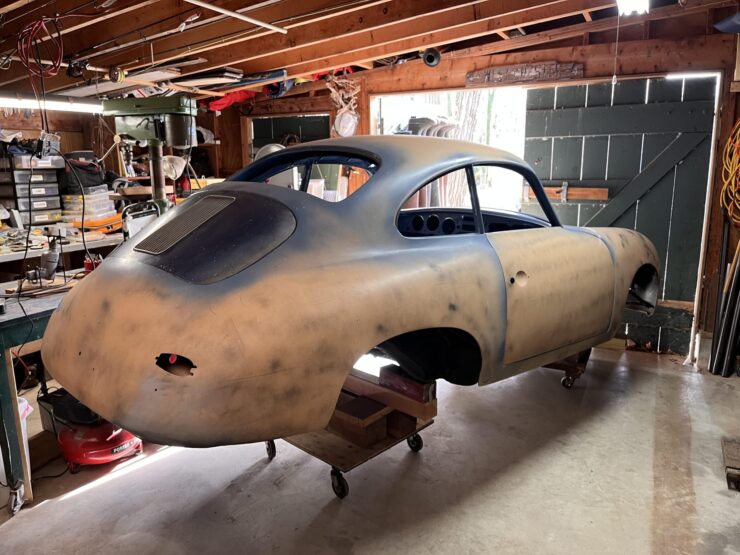
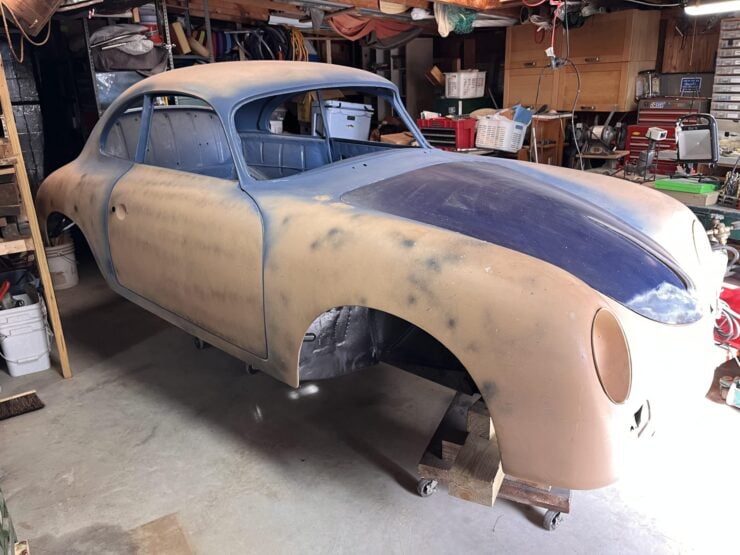
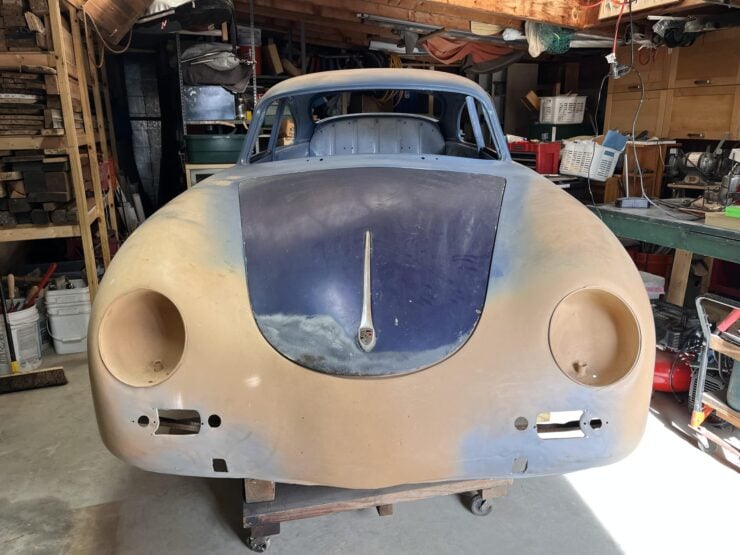
Images courtesy of Bring a Trailer

